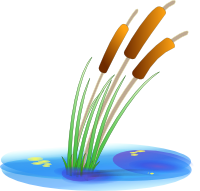Associations to the word «Bog»
Noun
- Peat
- Swamp
- Mud
- Marsh
- Terrain
- Fen
- Sand
- Wetland
- Stretch
- Moss
- Tundra
- Myrtle
- Moor
- Conifer
- Grassland
- Alder
- Orchid
- Wood
- Meadow
- Heath
- Turf
- Bullock
- Heather
- Pond
- Rosemary
- Steer
- Townland
- Slough
- Vegetation
- Waldo
- Woodland
- Habitat
- Pollen
- Upland
- Turtle
- Redoubt
- Savanna
- Shrub
- Drainage
- Ditch
- Trench
- Cauldron
- Thicket
- Tank
- Dune
- Expanse
- Fern
- Lowland
- Pasture
- Getting
- Headwater
- Tractor
- Camel
- Wisp
- Ore
- Wagon
- Ecosystem
- Kettle
- Burns
- Cavalry
- Willow
- Siege
- Colonization
- Scrub
- Casualty
- Pine
- Fir
- Sod
- Loch
- Hectare
Adjective
Adverb
Pictures for the word «Bog»
Wiktionary
BOG, noun. An expanse of marshland.
BOG, noun. (Ireland) (British) (New Zealand) (Australia) (coarse) (slang) A toilet.
BOG, noun. (US) (dialect) A little elevated spot or clump of earth, roots, and grass, in a marsh or swamp.
BOG, verb. (intransitive) (informal) To become (figuratively or literally) mired or stuck.
BOG, verb. (transitive) (British) (informal) To make a mess of something.
BOG, verb. (euphemistic) (slang) (British) (with "off") To go away.
BOG, noun. Initialism of boots on the ground.
BOG ASPHODEL, noun. A yellow-flowered perennial, Narthecium ossifragum found in wet open areas of western Europe, and bearing orange fruits formerly used as a food coloring.
BOG ASPHODEL, noun. Related species found elsewhere, such as Narthecium americanum and Narthecium californicum
BOG ASPHODELS, noun. Plural of bog asphodel
BOG BILBERRIES, noun. Plural of bog bilberry
BOG BILBERRY, noun. A shrub native of the cool temperate areas of northern hemisphere, Vaccinium uliginosum.
BOG BILBERRY, noun. The berry of that shrub.
BOG BRUSH, noun. (informal) a toilet brush
BOG BUTTER, noun. An ancient waxy substance found buried in peat bogs, probably the result of an old method of making and preserving butter.
BOG CLUBMOSS, noun. Lycopodiella inundata, growing in boggy cool, subarctic, and alpine conditions in the northern hemisphere.
BOG DOWN, verb. (intransitive) To become stuck (as if in a bog) and unable to progress.
BOG DOWN, verb. (transitive) To cause to become stuck and unable to progress.
BOG EARTH, noun. A soil composed mainly of silex and partially decomposed vegetable fiber.
BOG IN, verb. (intransitive) (idiomatic) to start eating with gutso
BOG IN, verb. (transitive) (usually in the passive) to halt the progress of
BOG IRON, noun. (geology) deposits of mixed oxides and hydroxides of iron formed when iron-bearing groundwater emerges onto the surface
BOG IRON ORE, noun. (geology) Deposit of porous, impure limonite found in bogs and swamps.
BOG MOSS, noun. Peat moss; sphagnum
BOG MYRTLE, noun. A shrub with a strong resinous scent, Myrica gale, growing on moors and fens.
BOG OFF, verb. (idiomatic) (euphemistic) (slang) To leave, to go away.
BOG ORCHID, noun. Any of several small orchids of the genus Habenaria that grow in peaty wet ground.
BOG ORCHID, noun. A small orchid, Hammarbya paludosa that grows in bogs in temperate and subarctic regions of the Northern Hemisphere.
BOG ORCHID, noun. Any of several small orchids of the genus Platanthera that grow in wet ground in temperate regions of the Northern Hemisphere.
BOG ORCHIDS, noun. Plural of bog orchid
BOG ORE, noun. Alternative form of bog iron ore
BOG PAPER, noun. (UK) (informal) toilet paper
BOG ROLL, noun. (British) (mildly vulgar) toilet paper.
BOG ROLL, noun. (British) (mildly vulgar) a roll of toilet paper.
BOG ROSEMARY, noun. Any shrub in the genus Andromeda, especially Andromeda polifolia.
BOG STANDARD, adjective. (idiomatic) Especially plain, ordinary, or unremarkable; having no special, excess or unusual features; plain vanilla
Dictionary definition
BOG, noun. Wet spongy ground of decomposing vegetation; has poorer drainage than a swamp; soil is unfit for cultivation but can be cut and dried and used for fuel.
BOG, verb. Cause to slow down or get stuck; "The vote would bog down the house".
BOG, verb. Get stuck while doing something; "She bogged down many times while she wrote her dissertation".
Wise words
However many holy words you read, however many you speak,
what good will they do you if you do not act upon them?

